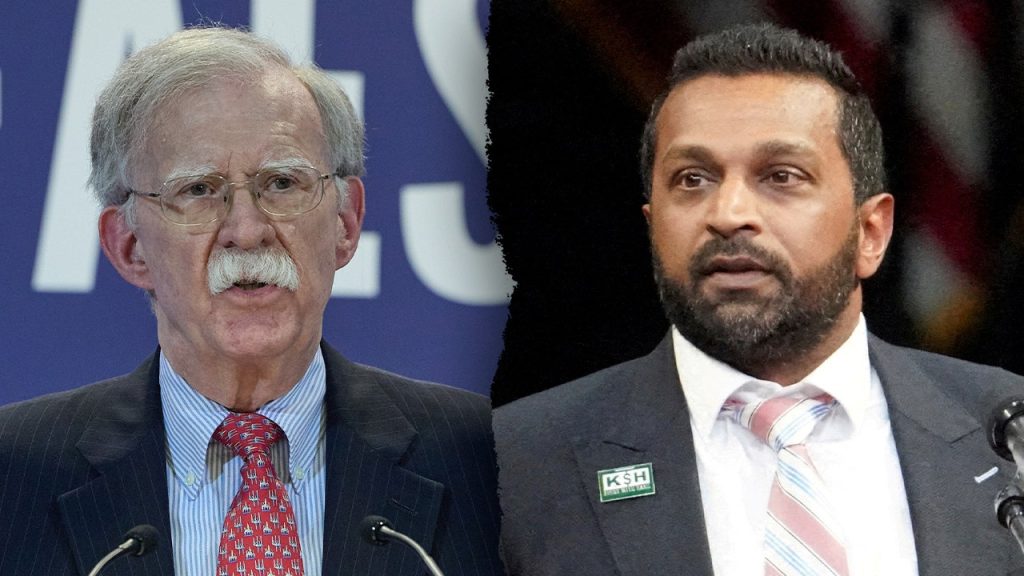In a recent statement, former national security adviser John Bolton urged the Senate to reject President-elect Trump’s nomination of Kash Patel for FBI director. Bolton compared the choice to Josef Stalin’s reign of terror, specifically referencing Lavrentiy Beria, the head of the Soviet secret police under Stalin. Beria is known for his brutal tactics, including widespread surveillance, repression, and ethnic purges. Bolton believes that Patel, a former senior director for counterterrorism at the National Security Council, is a Trump loyalist who could potentially implement drastic reforms within the FBI if confirmed. Patel himself has stated that he would “shut down the FBI Hoover Building on day one and reopen the next day as a museum of the deep state.”
The nomination of an outsider like Patel for such a significant position has sent shockwaves across Washington. Trump has described Patel as a “brilliant lawyer, investigator, and ‘America First’ fighter.” However, Bolton is not the only figure who has criticized Trump’s choices for key positions. In a previous episode of “Meet the Press NOW,” Bolton denounced Trump’s nomination of Matt Gaetz for U.S. attorney general as “the worst nomination for a Cabinet position in American history.” Bolton warned that such nominations could endanger Republican senators, urging the Senate’s new leadership to insist on the withdrawal of Gaetz’s nomination. These statements reflect Bolton’s ongoing concerns about the direction of the incoming administration and the impact of these selections on key government agencies.
Bolton’s opposition to Patel’s nomination is based on his concern that an individual with loyalty to Trump and a stated goal of exposing the “deep state” could significantly disrupt the operations of the FBI. By comparing Patel to historical figures like Beria, Bolton is highlighting the potential risks associated with unconventional appointments to critical national security positions. The tension between loyalty to a political leader and the independence and integrity of key institutions like the FBI is a recurring theme in discussions about the incoming administration. Bolton’s call for the Senate to reject Patel’s nomination underscores the importance of maintaining the checks and balances that safeguard the effectiveness and credibility of governmental processes.
Trump’s decision to nominate Patel, a figure who has expressed strong skepticism of elements within the government he would potentially oversee, is consistent with his administration’s track record of challenging established norms and protocols. Patel’s background as a counterterrorism expert and his views on the existence of a “deep state” suggest a willingness to take bold and unconventional actions if confirmed as FBI director. However, the resistance from figures like Bolton, who have deep experience in national security matters, reflects a broader concern about the potential consequences of appointing individuals with political allegiances that could compromise the integrity of critical institutions. As the Senate prepares to consider Patel’s nomination, the debate over the future direction of key agencies will likely intensify, highlighting the complex dynamics at play in the transition of power from one administration to the next.
In the current political landscape, tensions between competing priorities, values, and visions for the future of the country are shaping the debates over key appointments and policy decisions. The clash between Bolton’s concerns about maintaining the independence and professionalism of national security institutions like the FBI and Trump’s determination to reshape these agencies to align with his vision of governance exemplifies the broader struggle over the direction of American government. The question of how to balance the need for accountability, transparency, and adherence to established norms with the desire for innovation, efficiency, and loyalty to a particular political leader will continue to influence discussions within Washington and beyond. The upcoming confirmation process for Patel and other key positions will serve as a focal point for these debates, providing insight into the ongoing challenges facing the nation as it navigates a period of transition and uncertainty.

